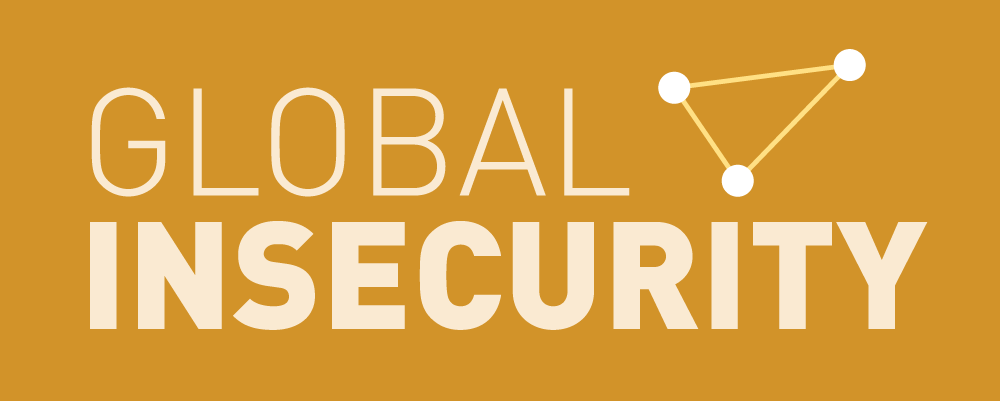Political Economy of Multipolarity and New South-South Relations
Bo Kong, Kevin P. Gallagher Energy Research & Social Science, Volume 71, 2021, 101838
This paper examines the puzzle of why China has thus far channeled a tiny fraction of its massive official development finance (ODF) for energy worldwide to solar and wind power. With a supply/demand analytical framework, our empirical analysis and field research show that both the foreign demand for Chinese ODF and the supply by the country’s two global policy banks face limits. The external demand is limited because foreign countries often approach non-Chinese sources for solar and wind power development finance; even when they turn to China for renewable power finance, they request more Chinese ODF for their hydropower and coal-fired power expansion. Meanwhile, shaped by their experience in renewable power finance in China and worried about the bankability of the solar and wind power projects abroad, the two Chinese policy banks exhibit sharpened risk sensitizations and biases against renewable power projects abroad.
Omar Dahi and Firat Demir, London: Anthem Press. 2020
“This book examines the rise of South–South economic relations while including a historical, theoretical, and empirical examination that attempts to both place current South–South relations within their historical trajectory and examine in what ways current South–South relations differ from previous attempts such as ‘new-regionalism’.” - Anthem Press
Firat Demir and Hyeonjin Im, The World Economy, 00: 1– 27, 2019
In this paper, using cross‐sectional and panel data analysis on bilateral trade in goods and services, and FDI inflows and outflows, the authors examine the economic effects of 1,266 cultural institutes from China, France, Germany, Japan, Portugal, Spain, Turkey and UK for the period of 1990–2015. The empirical results suggest that cultural institutes have significantly positive trade and FDI enhancing effects, which are persistent over time. However, these effects are most robust only with goods exports and FDI outflows. Furthermore, the economic effects of cultural institutes are not homogenous across destinations and are the strongest for developed rather than developing host countries. There is also significant heterogeneity among cultural institutes with significant differences in their economic effects on different types of bilateral trade and FDI flows.
South-South vs. South-North Economic Exchanges: Does it Matter Who is Exchanging What and with Whom?
Firat Demir and Omar Dahi, Journal of Economic Surveys, 31(5): 1449-1486, 2017.
This paper surveys the literature on costs and benefits of South–South versus North–South economic exchanges. Unlike the case for North–South exchanges, academic work on South–South economic relations has been historically limited given their marginal importance in the global economy. After the 1990s, the literature has changed in two main ways. First, South–South trade and finance since then has increased dramatically, leading to a bourgeoning literature on the topic. Second, the rise of the Emerging South has opened up new lines of inquiry to include not just the traditional topics of trade and preferential trading agreements, but also cover technology transfer, capital flows, labor migration, institutions, and environment. We discuss how this literature has evolved to take into account the greater complexity of South–South relations with a focus on China in Africa as well as the blurring of the lines between heterodox and mainstream analysis of South–South relations. The authors end the review by showing how the empirical and theoretical literature is exploring the increasing divergence within the global South between what they refer to as the Emerging South and the Rest of South.
Firat Demir and Chenghao Hu, The World Economy, 39(12): 2000-2024, 2016
The authors explore the asymmetric effects of institutional differences on bilateral foreign direct investment (FDI) flows conditional on countries' development levels, previous experiences of foreign investors and bilateral trade relations. The empirical results suggest that institutional differences create entry barriers for foreign investors only in North–South and South–North directions. Furthermore, Southern investors appear to have a comparative advantage in institutionally different developing countries. Finally, the authors find no evidence that investor experiences in other institutionally different countries or existing trade linkages negate the negative effect of institutional distance.
Jordi Quero, University of California Press, 2020
This article explores the impact of China on the norms and institutions constituting the regional order in the Middle East and North Africa (MENA). Through an examination of three cases in ways that China challenges global order: the Bretton Woods global economic order; contestation of the Law of the Sea; and challenges to particular liberal elements of the global order, Jordi Quero assesses how these strategic stances of China may impact the MENA region.
The politics of state capitalism in a post-liberal international order: the case of Turkey
Mustafa Kutlay, Third World Quarterly, 41:4, 683-706, 2018
This article discusses the transformation of the liberal international order, with reference to the ways in which global shifts affect the developmental paradigms among the emerging middle powers. Although it is rarely contested that the liberal order is being severely tested, the dynamics and potential consequences of this transformation are a matter of intense controversy. Moreover, the debate does not pay adequate attention to the ways in which middle powers are influenced by and inform the transition to a post-liberal international order. By focusing on the case of Turkey, this article addresses whether non-Western great powers (Russia and China in particular) are leading the emergence of alternative order(s), and if so, through what mechanisms. Based on the reciprocal interactions between ideas, material capabilities and institutions, Kutlay argues that the preferences of the Turkish ruling elite seem to be gradually shifting from a Western-oriented liberal model towards a variety of ‘state capitalism’ as an alternative developmental paradigm in a post-liberal international order.
Sinews of War and Trade: Shipping and Capitalism in the Arabian Peninsula
Laleh Khalili, Verso Books, 2018
“Sinews of War and Trade is the story of what the making of new ports and shipping infrastructure has meant not only for the Arabian peninsula itself, but for the region and the world beyond. The book is an account of how maritime transportation is not simply an enabling companion of trade, but central to the very fabric of global capitalism. The ports that serve maritime trade, logistics, and hydrocarbon transport create racialised hierarchies of labour, engineer the lived environment, aid the accumulation of capital regionally and globally, and carry forward colonial regimes of profit, law and administration.” - Verso Books
Efe Can Gürcan, Routeledge, 2019.
“The crisis of Northern capitalism and failure of hegemonic global governance have created a facilitative environment for post-hegemonic initiatives promoting South–South cooperation. Major Southern countries – especially the BRICS – have taken the lead in pushing for alternative governance mechanisms that are strongly articulated in the areas of economic, financial, cultural, and defense cooperation.
This book focuses on the historical, political-economic, and geopolitical context in which major Southern countries implement a post-hegemonic agenda. Providing a global and comprehensive perspective through a series of focused case studies from Europe, Latin America, Eurasia, and Africa, the author develops a new approach to the multipolarization of world politics based on "global hegemony".” - Routeledge.






